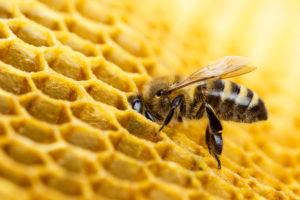Work with an Expert Who Can Help You Manage Your Bee Sting Allergy

If you have an allergy to bee stings then you already know how serious this situation can be. It’s not enough to simply know about the allergy and work to avoid bees. At Allergy, Asthma, and Immunology Medical Group, we’ll work to help treat your allergy in a way that helps you move forward. Contact us today at 805-658-9500 for more information.
We can help reduce your risk of having a life-threatening reaction
For the average person, a bee sting is just a minor annoyance. Of course, that’s not the case for about two million Americans – the number of people who are allergic to the venom of bees. These people can have a more serious reaction, including pain that lasts longer, swelling where they were stung, and redness. They also run the risk of more serious reactions that include a drop in blood pressure, severe itching, hives, a hard time breathing, and, in the worst case scenario, even anaphylactic shock. One thing that many people don’t realize is that the more times a person with a bee sting allergy is stung by a bee, the more severe the reaction can be. In fact, it can increase as much as 60% every time they’re stung. As a result, if you’ve noticed that your child has had signs of an allergic reaction after being stung by a bee, then you should see your doctor – even if it doesn’t seem that serious. When you visit Allergy, Asthma, and Immunology Medical Group, we can work to actually prevent the allergic reaction from getting to the point where there’s a real risk of death caused by anaphylactic shock brought on by bee venom. Though this is relatively rare, it does happen to about 100 people every year in the United States alone. If you have a bee sting allergy, then one of the things we’ll likely do for you is to write an epinephrine prescription. It can be taken if you do go into anaphylactic shock and it can actually save your life by dilating your airways, which can prevent you from asphyxiating. Other tips we may offer including wearing a medical alert that signifies you’re allergic to bees, and of course avoiding stinging insects. We actually have some unique tips to help you steer clear of them. If you’re looking for a more serious protection, then bee venom immunotherapy may be a good choice. This is often the choice of people who are dealing with other health issues, like asthma. If this is the route you choose, our doctors will create a schedule of injections that slowly increase the amount of bee venom they have. Over time, your body will become tolerant. This can reduce your risk of an allergic reaction from about 60% to just 5%. Call Allergy, Asthma, and Immunology Medical Group at 805-658-9500 to set up your appointment.
Options for treating bee sting allergies
Immunotherapy may be the answer



